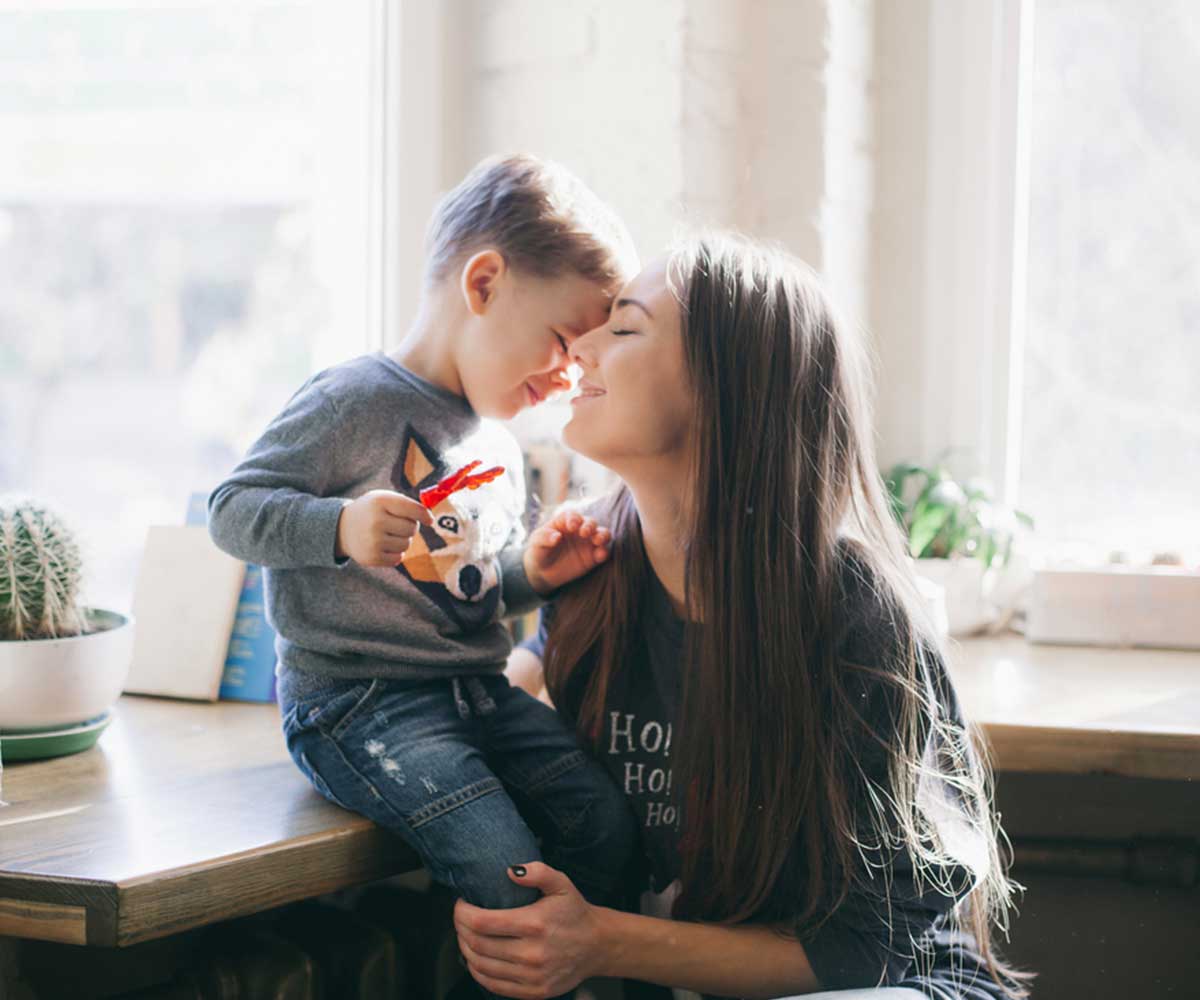The image above is a stock image and does not show the author and her child.
It is 6.36am on a humid Sunday morning in May 2017 and I am sitting on a sticky leather hospital chair, naked from the waist up. I haven’t slept a wink, my eyes are dry and sore, and I feel wired on adrenaline. On the floor beneath my feet there is a small pool of blood. It doesn’t belong to me but to my wife, Arabella.
She has been rushed into the operating theatre in an emergency after pushing a baby out of her womb – a tiny newborn creature who now rests upon my chest aged just 34 minutes old.
“So you’re my son,” I say out loud, in disbelief. He feels more alien than human. His hands and feet move in sporadic jerks and are sometimes accompanied by a squawk. He has a gluey shock of black hair upon his scalp and tiny white tussocks (infant pimples known as ‘milia’) on his reddish skin.
“Welcome to the world Baby Rufus,” I say, hoping he’ll like his chosen name.

Right now, Rufus is sleeping. He’ll do this a lot in the first few weeks, waking only to feed and gaze awhile before nodding off again. Of course it doesn’t stay that way – as Rufus grows past two, three and six months old, his demands become more complex and his sleeping less routine.
First, he found his voice and amused us no end by yelling while eating, whether he liked the food or not. Then he started standing in his cot and rattling the bars angrily while waiting for one of us to come.
Now aged 15 months, he is more spirited than ever, constantly giggling and exploring, climbing up stairs and crawling on tables, pulling books off shelves and emptying bins.

The new world of being a parent
I won’t deny that parenting is utterly exhausting (Rufus has never, ever slept through the night) and yet it is also the most life-affirming, profound experience of my life. I only wish that I could have shown the inside of my heart as it is right now to the woman I was during my wife’s pregnancy.
I was so utterly terrified of our impending arrival, worried that I wouldn’t be able to meet an infant’s clamouring needs, nor support his other mother as I should, that to some extent I ended up manifesting that! I know my wife found this upsetting and that she felt quite alone dealing with the last stages of her pregnancy.
I had a count-down going on in my head, as if we were approaching something disastrous rather than something life-enhancing.

As much as people told me to relax and take things one day at a time, I continued to toss and turn at night and imagine all the things that were going to change, especially my ability to write: with the exhaustion and the responsibility, would I ever find any time for my passion, my obsession and my profession?
I was also concerned about my role. How did I fit into our family? My wife’s job was obvious – she was to birth our baby and then spend a year with him before returning to work. My job was to earn the money on one hand, and also to tend to him as a parent on the other.
I didn’t feel like a dad, but also didn’t feel like a ‘real’ mother either. He didn’t scream for me as he did for Arabella; I wasn’t breastfeeding. Actually Rufus didn’t need me at all to stay alive.

Growing as a person while your child grows
I really needn’t have been so anxious about it. What is so obvious to me now is that all the exhaustion of parenting is counteracted by a shimmering, all-pervasive kind of love. What’s more, it’s not a love that only biological parents feel.
Rather, it’s a love that comes from connection, from the enormous task of nurturing and protecting a defenceless human being, day and night. This isn’t an unspoken emotional contract as so many other relationships are, it’s not based on mutual joy or benefit at all.
Our baby was born owing us nothing; it was up to us to do it all, to love our baby who then can learn, via experience, how to be a loving, affectionate little person.
What’s more, the love I felt for Rufus was until very recently completely wordless, based almost wholly on touch and sense and instinct.
Where else in our adult lives do we fall in love with another person without exchanging a single sentence? For a writer like me, who is attracted to someone’s words and thoughts as much as she is their looks or touch or temperament, this was previously unfathomable. And yet it has happened, with Rufus and me.
How much easier might my wife’s pregnancy have been (for both of us) if I had been able to see into the future, into the joy that our baby boy would bring?
It is an extraordinary process, to watch one’s child change every week and also to notice oneself changing. Of course there are some important milestones along the way.
That first ‘golden hour’ of skin-on-skin time we shared, for example, while his ‘tummy mummy’ (as we call Arabella) was in surgery. Or the first time I took him out for a walk alone and realised that I was in charge, and he was fine with that.

There was the day his first tooth arrived (six months), the time he ate his first solid food (sweet potato), his first word (cat!), first birthday and, shortly afterwards (aged 13 months), the first time he took a couple of steps (before toppling back onto his bottom).
More important to me, however, were the private moments – moments that led me deeper into motherhood than any parental label or shared biology ever could.
They include the first time I danced with him, squatting down to his level and shimmying my shoulders while he bobbed up and down to the music with his chubby toes gripping the floor to keep him upright; the night I finally managed to rock him to sleep after 30 minutes of solid crying and then, just 72 hours later, rocked him to sleep in five minutes without a single tear; also the first time he clearly called me mama, exactly as he does Arabella, because, well… that’s exactly what I am.
It takes two to parent
One thing’s for sure: I’ll never regret becoming a mother to Rufus.
Nor will I ever wish that I had given birth to him, or was biologically related to him in any way. Everybody who sees the three of us together simply asks which one of you gave birth because, despite our opting for a known donor and at-home artificial insemination (without any kind of egg sharing or medicalised procedure whatsoever), Rufus actually looks a lot like me. I had completely let go of the idea of his ever bearing any resemblance to my side of his family because I know that none of that matters – it’s hardly just aesthetics that makes child feel a sense of belonging within a family.
What remains important is that Rufus has two parents who adore him, who feel blessed that he was born and who both take responsibility for his security, wellbeing and growth.
He has two mothers with different looks, different parenting strengths and different views on how tidy he’ll need to keep his room when he gets older.
Isn’t that about as normal as it gets?

The top five questions I get asked as a non-biological mother
Didn’t you want to be pregnant?
Um… no. I’ve never wanted to be pregnant and I never felt jealous of my wife while she was growing our baby boy. Contrary to common belief, maternal feelings don’t have to include the desire to be pregnant or give birth.
Was it easy to bond with your baby?
Yes. Being present when your baby comes out of your loved one’s body, being named on their birth certificate, knowing you’re responsible for this person and watching them grow up from the day that they were born… These things were for me far more important in encouraging bonding than a shared biology.
So, are you the dad?
No! The dad is the word we use for a male parent and I look very obviously female, so please stop asking me such a stupid question.
What’s he going to call you both?
I think he’ll figure that one out himself. As long as he doesn’t call me something rude I don’t really care.
Did you breastfeed too?
No, I didn’t want to, although nowadays women can take medication that allow them to breastfeed a child, even though they haven’t been pregnant or given birth.




